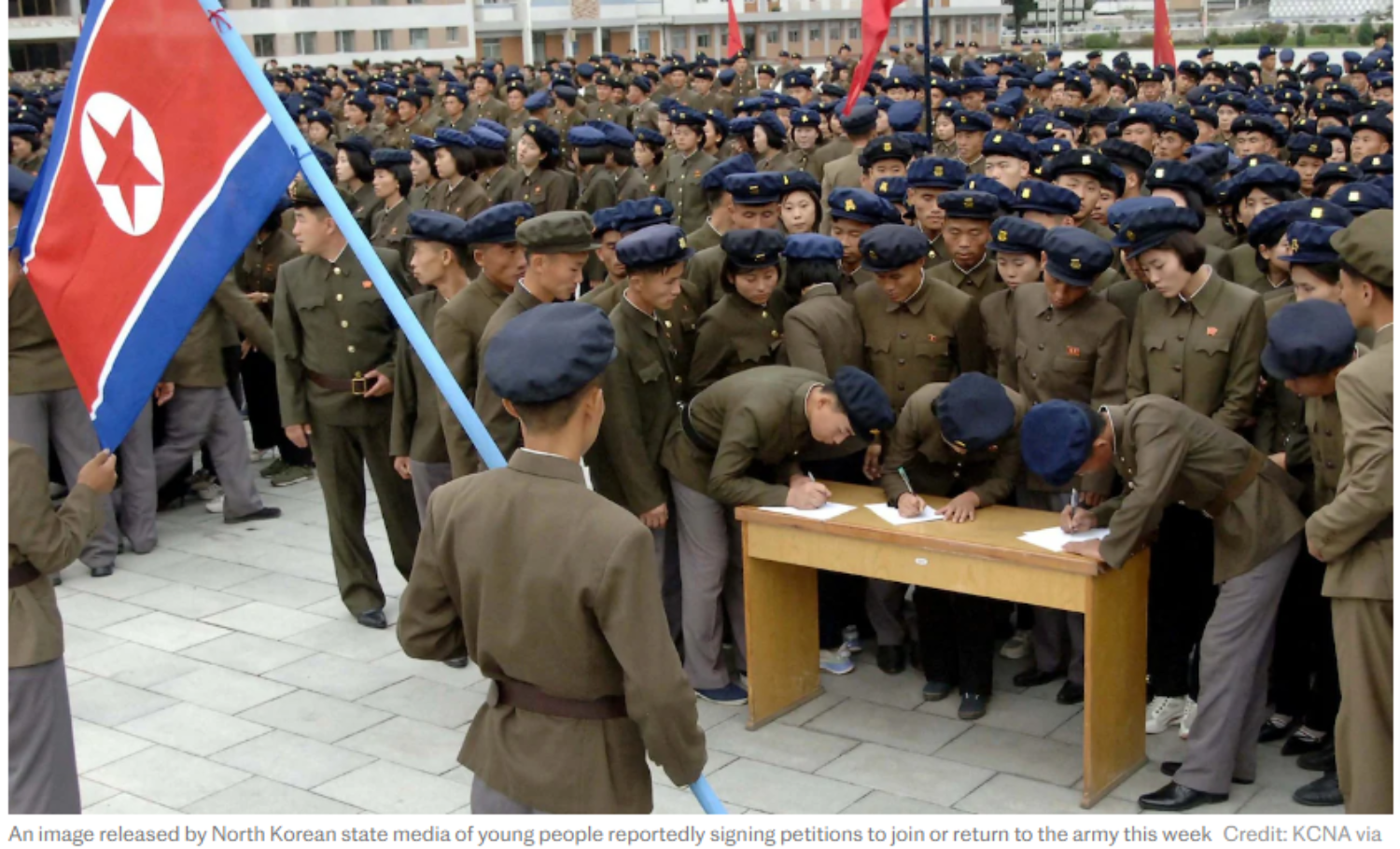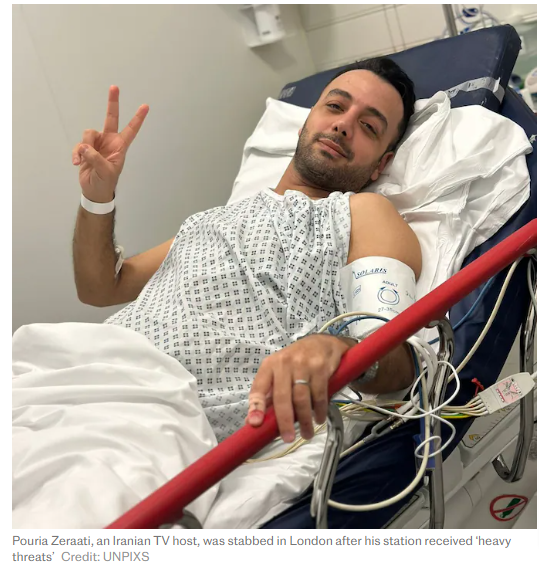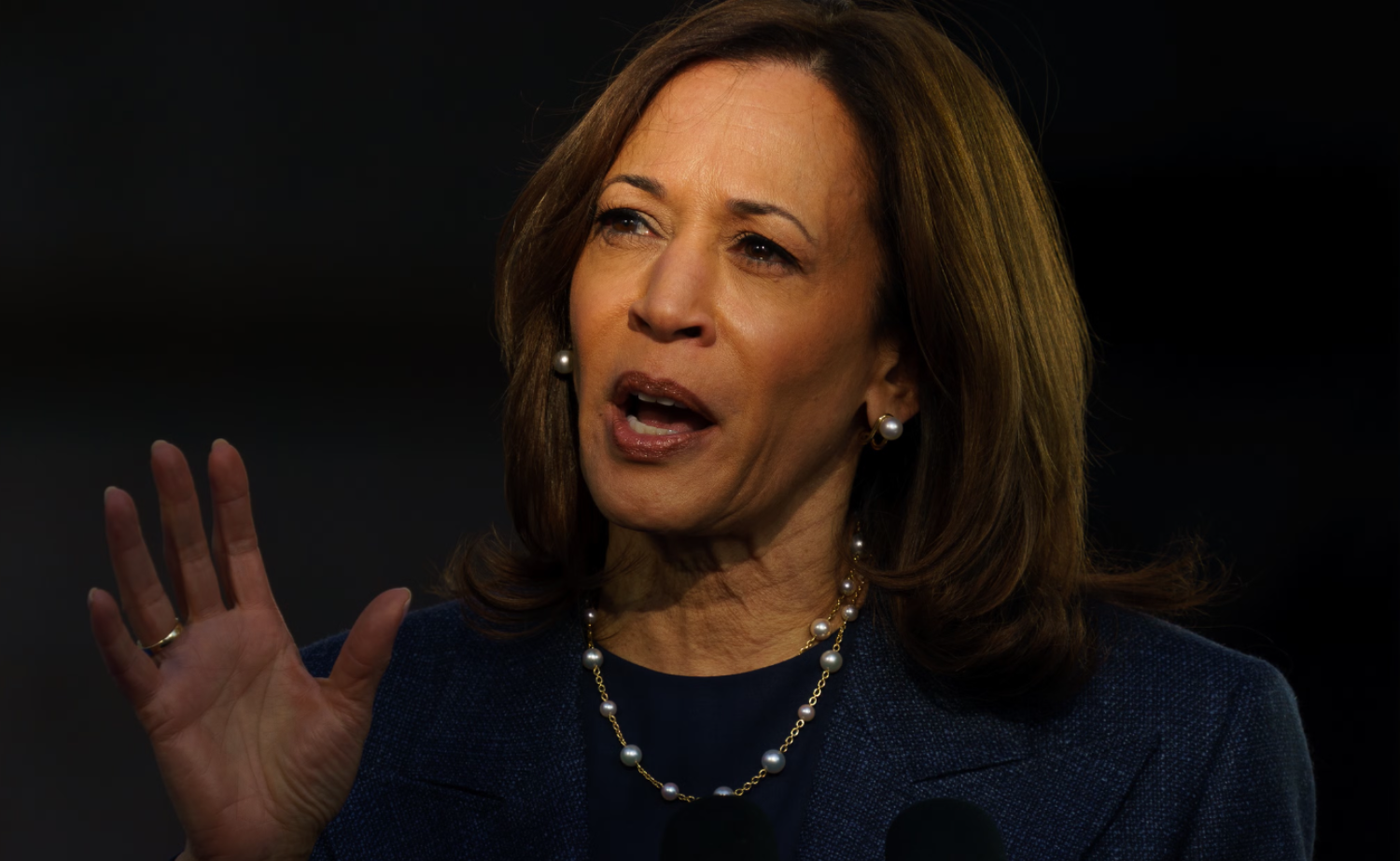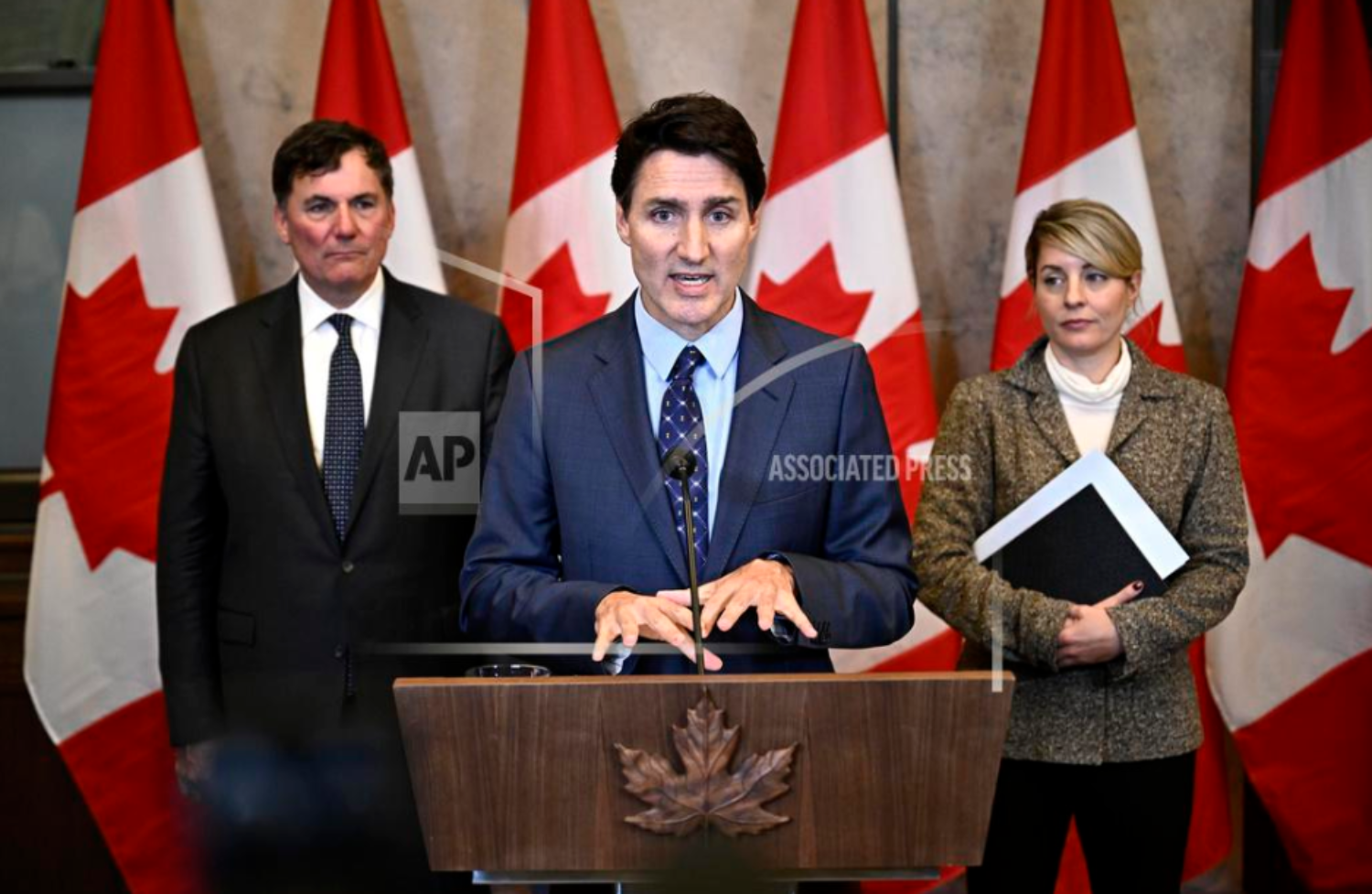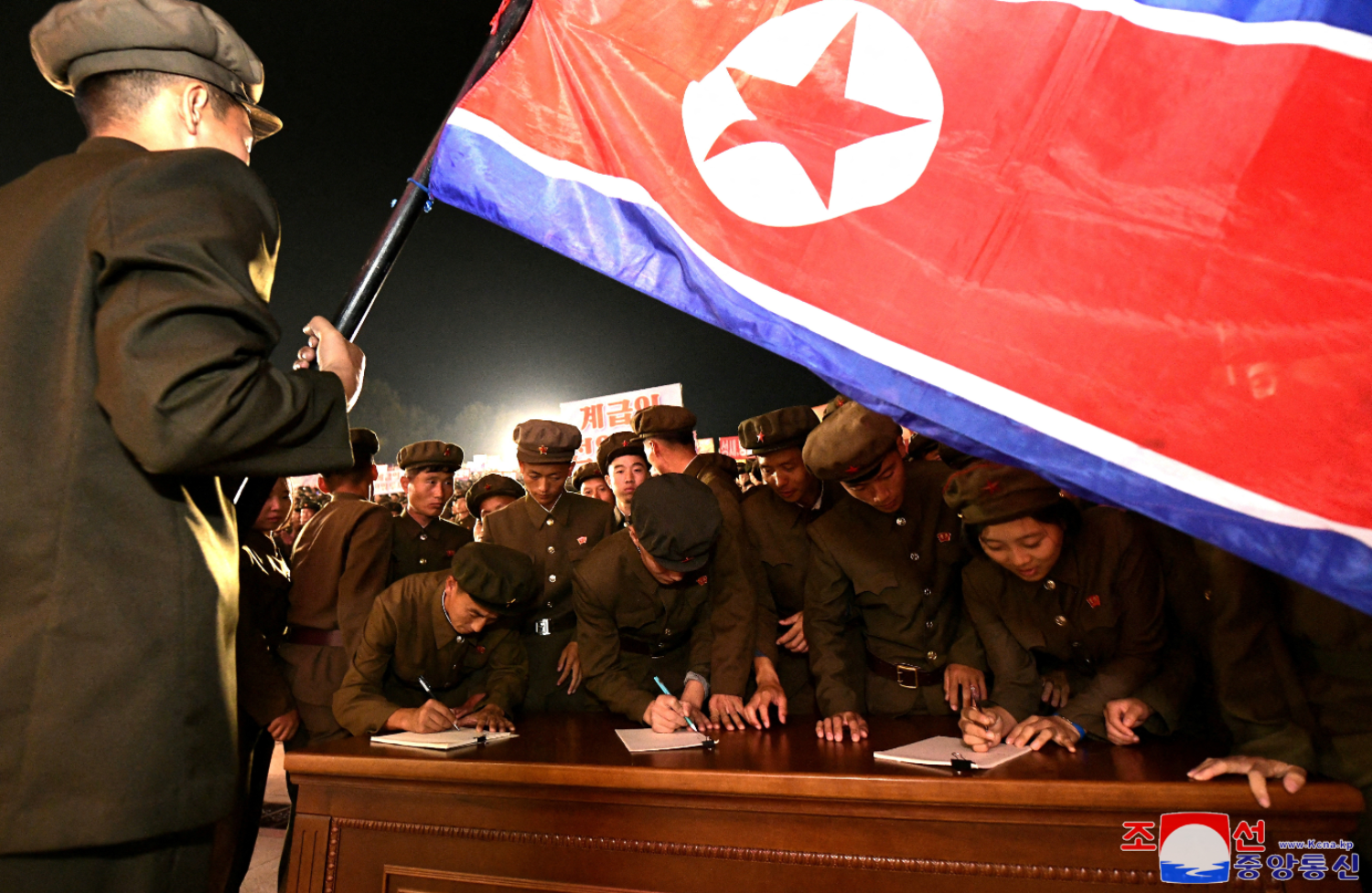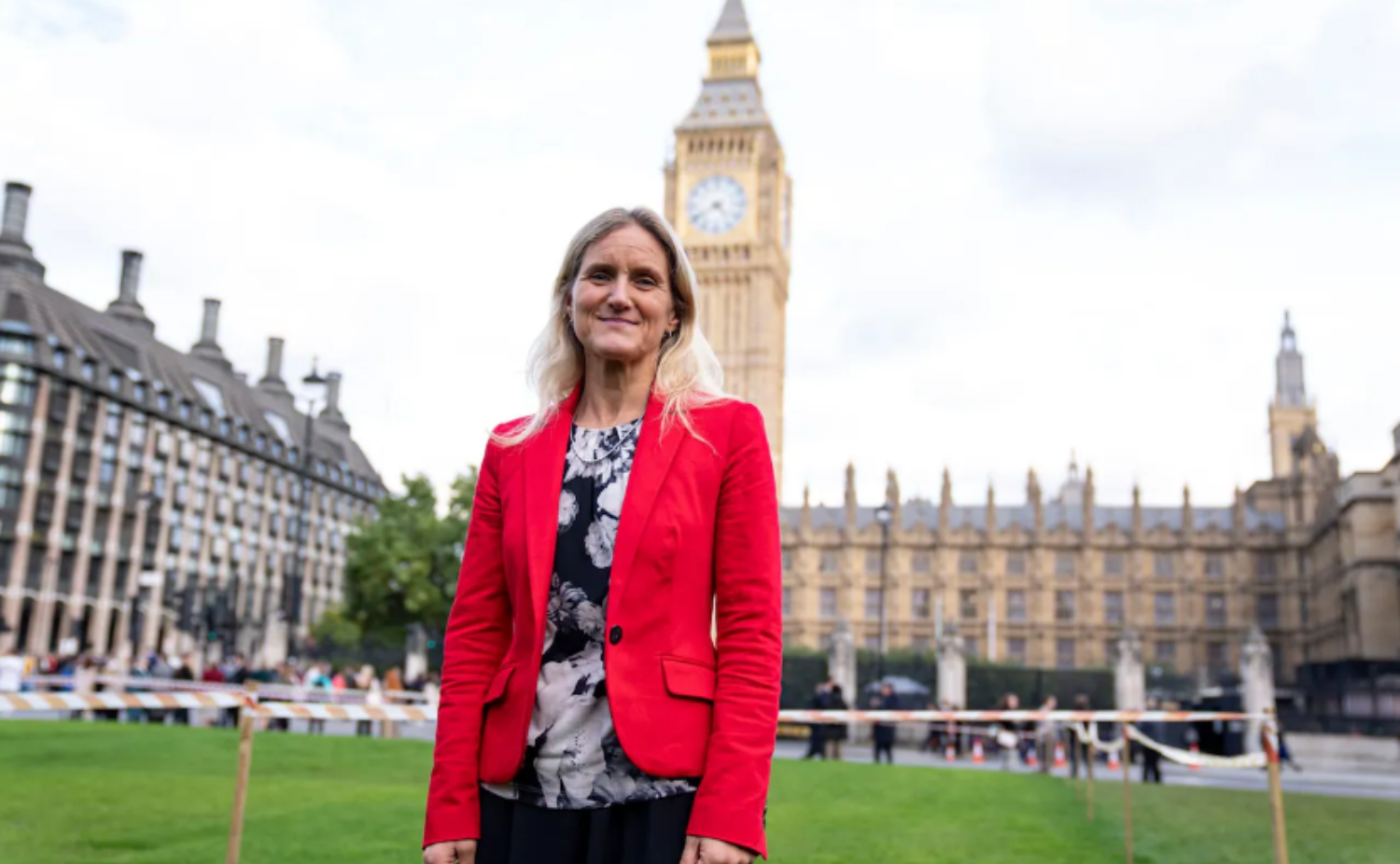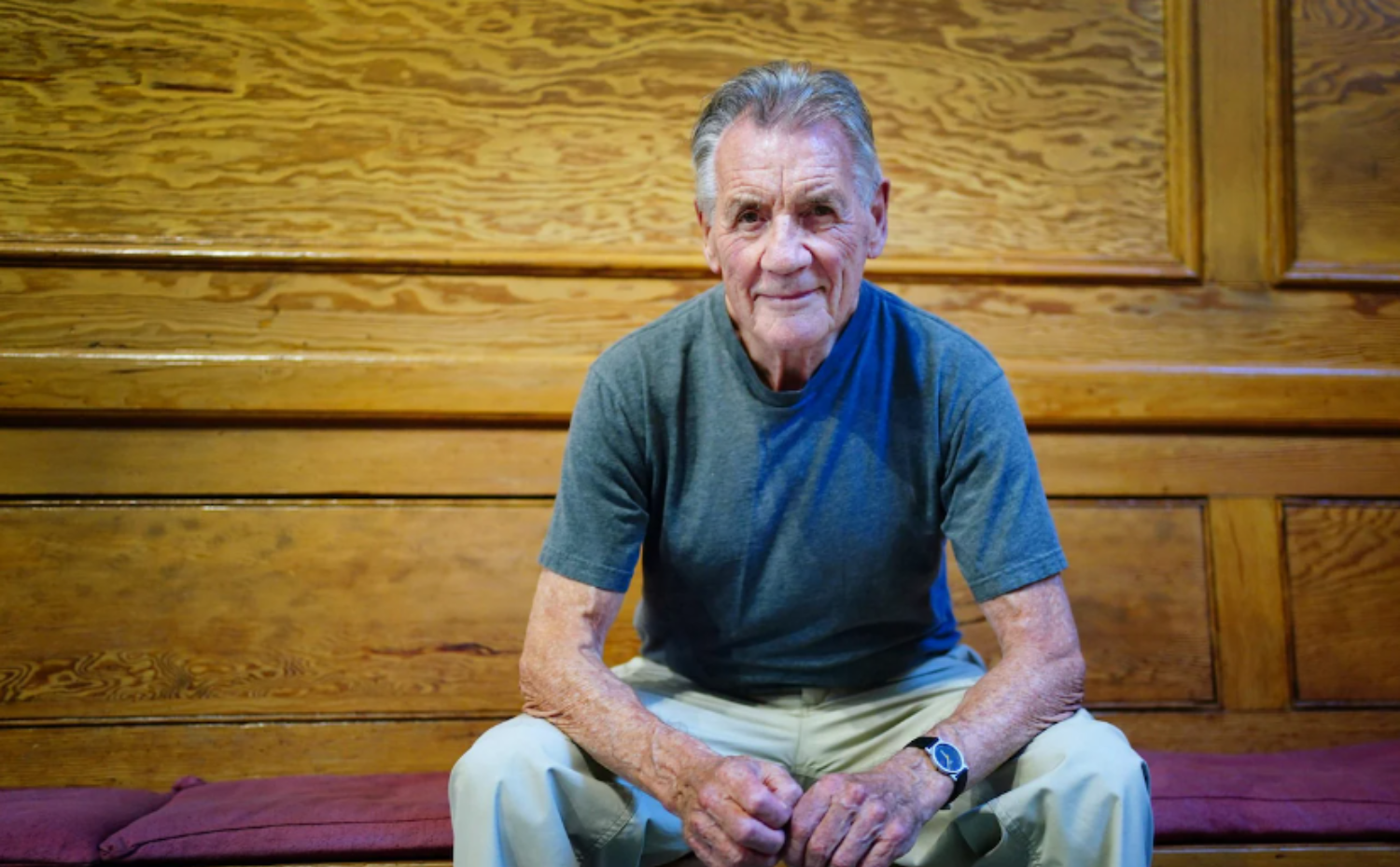-
Posts
10,744 -
Joined
-
Last visited
Content Type
Events
Forums
Downloads
Quizzes
Gallery
Blogs
Everything posted by Social Media
-
The BBC’s decision to cancel its flagship current affairs programme, *HARDtalk*, after nearly three decades on air has sparked outrage among viewers and media figures alike. Known for its hard-hitting interviews with global leaders, *HARDtalk* has become synonymous with rigorous journalism and challenging political figures. The show is hosted by veteran broadcaster Stephen Sackur, who has been a key part of its success. On Tuesday, October 15, the BBC announced that *HARDtalk* would be ending in March 2025, a decision accompanied by the loss of 100 news roles within the organization. The move comes as the BBC faces growing financial challenges, with projections suggesting a £492 million deficit for the 2024/25 financial year. Sackur, 60, expressed his deep disappointment over the decision, describing it as a significant loss for independent journalism. “It’s depressing news for the BBC and all those who believe in the importance of independent, rigorous, deeply researched journalism,” Sackur said. He stressed the value of the programme, adding, “At a time when disinformation and media manipulation are poisoning public discourse, *HARDtalk* is unique – a long-form interview show with only one mission, to hold to account those who all too often avoid accountability in their own countries.” Throughout his career, Sackur has conducted interviews with some of the most powerful and controversial figures in the world, including Robert Mugabe, Hugo Chavez, Sergei Lavrov, Emmanuel Macron, Recep Tayep Erdogan, and Nancy Pelosi. His interviews have gained a reputation for cutting through political rhetoric and demanding answers from world leaders. The decision to axe *HARDtalk* has led to widespread backlash. Fellow broadcaster Piers Morgan commented on the cancellation, expressing his surprise. “What a shame. Always enjoyed *HARDtalk* and your masterful interrogations, even when it [was] once me on the receiving end! Very surprised the BBC is ending it,” Morgan said. Viewers of the show were similarly unimpressed by the news, with many calling for the BBC to reconsider. “Closing *HARDtalk* is a grave mistake,” one viewer wrote. “It’s the BBC’s top show holding global leaders accountable with tough, necessary questions. In an era of misinformation, we need more *HARDtalk*, not less.” Another praised Sackur’s interviewing style, saying, “Stephen Sackur created the gold standard in how to conduct an accountability interview – speaking truth to power. Thanks to you and the *HARDtalk* team for the incredible public service over so many years.” As part of the broader changes, BBC Director of News Deborah Turness acknowledged the need to reduce posts due to financial pressures. In an email to staff, Turness explained, “I’m sorry to say that post closures are unavoidable. We propose to close 185 roles and open 55 new ones – a net reduction of 130 posts. As a result of the changes in news, media operations is also proposing to close the equivalent of 25 posts.” For many, the loss of *HARDtalk* represents more than just the end of a television show—it signifies the erosion of a platform dedicated to holding power to account in a world increasingly plagued by misinformation. Based on a report from the Independent 2024-10-18
-
In a recent interview with Bloomberg News, former President Donald Trump revealed that he had contacted Google CEO Sundar Pichai to express frustration over what he perceived as biased search results. Trump claimed that the tech giant was suppressing positive stories about him. Speaking at an event hosted by the Economic Club of Chicago on October 15, Trump told Bloomberg News' editor-in-chief, John Micklethwait, about his interaction with Pichai. "I'm getting a lot of good stories lately, but you don't find them in Google," Trump explained. "I think it's a whole rigged deal. I think Google's rigged just like our government is rigged." Trump elaborated on his dissatisfaction, asserting that the search engine displayed mostly negative coverage about him. "They only have bad stories. In other words, if I have 20 good stories and 20 bad stories, and everyone's entitled to that, you'll only see the 20 bad stories," he said during the interview. The comments from the former president highlight his long-standing tension with major technology companies, particularly regarding how information about him is handled. Trump has frequently accused tech companies of having a bias against him and conservative voices, a claim that has been consistently echoed by his supporters. On the other hand, these tech companies have repeatedly denied any bias. In August, Trump warned that Google would "pay a big price" after claims emerged suggesting that the tech company allowed the Harris-Walz campaign to use altered headlines in paid Google ads. His concerns with Google are not entirely new; back in 2017, before his Twitter (now X) account was banned, Trump suggested that there was collusion between Facebook and mainstream media, tweeting that "Facebook was always anti-Trump." During his conversation with Micklethwait, Trump did not limit his criticism to Google's handling of his search results. When asked about the possibility of breaking up Alphabet, Google's parent company, Trump remarked: "Google's got a lot of power. They're very bad to me—very, very bad to me." However, he stopped short of making an explicit call to dismantle the company, leaving the door open for potential actions by stating, "I'd do something." Newsweek reached out to both Google and Trump's representatives for comments on the matter, but no responses have been provided. Based on a report from Newsweek 2024-10-18
-
An independent panel has sharply criticized the U.S. Secret Service for significant failures and a broader cultural decline following the July assassination attempt on former President Donald Trump. The panel's report highlights a troubling lack of communication and critical thinking during the attack, which resulted in Trump being injured and a rally attendee killed in Butler, Pennsylvania. The panel, consisting of former Homeland Security Secretary Janet Napolitano, former acting Attorney General Mark Filip, and others, provided a detailed timeline of the events that unfolded. At 4:26 p.m., a local officer first observed Crooks sneaking into a restricted area near the rally, but communication regarding his suspicious behavior remained fragmented. Even after Secret Service became aware of Crooks at 5:44 p.m., agents were unable to locate him before he fired at Trump at 6:10 p.m. Crooks managed to fire eight shots at the former president from the roof of a nearby building before being fatally shot by a Secret Service agent. One of the most glaring oversights involved the unsecured AGR building, which had a direct line of sight to the rally stage. Despite receiving intelligence about possible foreign assassination threats, the building remained unchecked. Additionally, drone detection technology that could have flagged Crooks surveilling the rally grounds with his own drone was not deployed until too late due to technical problems. The report highlighted communication failures between Secret Service personnel and local law enforcement, who relied on a disjointed mixture of texts, phone calls, and emails. Despite these issues, at least nine Secret Service members had been alerted to Crooks’ suspicious activity before he opened fire. Yet, none of this information was relayed to Trump’s security detail, a failure that could have led to the decision to hold Trump back from appearing on stage until Crooks was apprehended. The agency’s embrace of a “do more with less” approach, as well as its rigid formula for determining security needs, was another point of criticism. The panel argued that the Secret Service has become formulaic in its risk assessments, lacking the critical thinking needed to evaluate the unique threats its protectees face. The agency's broader mission, which includes investigating financial crimes, was also called into question, with recommendations to narrow its focus solely on protection. Following bipartisan criticism, Secret Service Director Kim Cheatle resigned 10 days after the Butler shooting. Yet, many personnel involved in the rally appeared to lack self-reflection or accountability, with some showing a “lack of ownership” regarding security failures. The urgency for reform was underscored by a second assassination attempt just two months later, when another man armed with a semiautomatic rifle was spotted near Trump’s Florida golf course. Although this incident fell outside the scope of the panel’s review, it further emphasized the need for the Secret Service to enact the recommended changes. The panel conducted 58 interviews and gathered information from multiple agencies, including the FBI and Department of Homeland Security, to reach its conclusions. Ultimately, it urged the Secret Service to focus on better communication, enhanced agent training, and bringing in leadership from outside the agency to drive necessary reforms. Based on a report from Politico 2024-10-18
-
Prince William and Jacinda Ardern, the former Prime Minister of New Zealand, shared a lighthearted and memorable moment during an investiture ceremony at Windsor Castle. The two shared smiles and laughter as Prince William officially made Ardern a Dame Grand Companion of the New Zealand Order of Merit. Ardern has been closely working with the prince as a trustee of his Earthshot Prize, which awards $1 million grants to projects that aim to protect and preserve the environment. On his official X (formerly Twitter) account, Prince William expressed his admiration for Ardern, writing, "A friend, an extraordinary advocate for the environment and now a Dame Grand Companion of the New Zealand Order of Merit, for services to the State. @jacindaardern, it was a privilege to present you with this deserved award at Windsor today!" Ardern, visibly humbled, responded in a video posted alongside the prince’s message, saying, "It’s a huge honor. I feel really humbled by the chance to be here with my family, and really I see it as an acknowledgment of them and of every person I worked with and of everyone who supported me, and that includes a very large number of New Zealanders." Reflecting on her work with Prince William, she recalled their discussions about the Earthshot Prize long before it became a reality. "I remember some years ago now, Prince William telling me about the idea of the Earthshot Prize, and then to see what he’s created. It’s not just a prize for me, it’s the movement that I think is so important about telling every single person out there that we don’t have to wait for this catastrophe to happen to us. That there are things we can do and that are being done." Ardern’s involvement with the Earthshot Prize was publicly announced in April 2023 when Prince William shared how instrumental she had been in the prize’s early days. "Four years ago, before The Earthshot Prize even had a name, Jacinda was one of the first people I spoke to, and her encouragement and advice was crucial to the Prize’s early success," he said at the time. The ceremony marked not only a formal recognition of Ardern’s years of service to New Zealand and her continued advocacy for environmental causes but also a poignant moment of friendship and shared purpose between two global leaders working towards a better future for the planet. Based on a report from Newsweek 2024-10-18
-
In a significant escalation of the Ukraine conflict, a battalion of 3,000 North Korean soldiers is set to join Russian forces, signaling North Korea’s full involvement in the war. Intelligence sources have confirmed that the North Korean unit, known as the "Buryat Battalion," has been training secretly in Russia’s Far East and is preparing for deployment as part of a Russian airborne regiment. A senior Ukrainian military source told Politico, “They are called the Buryat Battalion.” The battalion is named after Buryatia, a remote region of Russia near Mongolia, which has been heavily targeted by the Kremlin for military recruitment. The scale of North Korean involvement may be even larger, as another Western intelligence source cited by The Kyiv Independent claimed that North Korea has sent 10,000 soldiers to fight alongside the Russian army. This development follows comments from Ukrainian President Volodymyr Zelensky, who denounced the alliance between Russian President Vladimir Putin and North Korean leader Kim Jong-un, calling it a “coalition of criminals.” Zelensky noted that North Korea's participation marks the first instance of a second state entering the war against Ukraine on the side of Russia. The move comes after a recent counterattack by Russian forces in the southern Kursk region, following an attempted Ukrainian invasion. Ukrainian officials had earlier described the incursion into Kursk as a “strategic masterstroke.” However, analysts from the US-based Institute for the Study of War suggested that this offensive may have inadvertently drawn North Korea into the conflict. The Kremlin is expected to justify the deployment of North Korean soldiers after the Russian parliament ratifies a deal with North Korea for mutual military support, a decision that is anticipated in the coming days. North Korea’s involvement in the war could be a game-changer for Russia, as the two-and-a-half-year conflict has devolved into a war of attrition, with military recruitment and supply lines becoming crucial to the outcome. While North Korea has previously sent artillery shells and missiles to support Russia, this marks the first instance of North Korean soldiers being deployed to the battlefield. Earlier this month, six North Korean officers were reportedly killed by a Ukrainian artillery strike in Russian-occupied Donetsk, according to South Korean sources. Analysts are skeptical about the quality of North Korean troops but recognize the potential boost in manpower for Russia. “It’s tragic to see Ukraine’s partners offering support as if they are playing some academic simulation based on theory, while Russian allies just throw in military force to help Russia win,” remarked Phillips O’Brien, a professor of strategic studies at St Andrews University. North Korea's army is estimated to have over one million soldiers, providing Putin with a large reserve force as Russia continues to suffer heavy losses, with more than 1,000 soldiers reportedly dying each day in mass infantry assaults. In contrast, Ukraine has been struggling to replenish its forces. Recruitment efforts have faltered despite increased measures to conscript more men, as many fear that serving on the front lines will result in death or serious injury. John Foreman, Britain’s former defense attaché in Moscow, emphasized the importance of North Korean troops to Russia’s strategy. “It means tapping a new source of cannon fodder,” Foreman explained. “It also means using non-Russians. No one will care if the North Korean troops are killed.” North Korean soldiers have not been deployed in combat since the Cold War, when they fought in various proxy wars on behalf of the Soviet Union. However, reports from Russian military bloggers indicate that at least 18 North Korean soldiers have already deserted from their training camps in Russia. The United States has expressed concern over the reports that North Korea is preparing to send troops to fight alongside Russia in Ukraine. If confirmed, this would further complicate the already volatile international dynamics surrounding the war, as North Korea’s involvement adds another layer of complexity to the ongoing conflict. Based on a report from the Daily Telegraph 2024-10-18
-
Britain is grappling with a dramatic surge in threats from hostile states, including assassination plots, sabotage, and espionage, according to Matt Jukes, the UK’s counter-terrorism chief. In a statement highlighting the growing danger, Jukes revealed that such investigations now account for 20 percent of his officers’ workload, a significant increase from just five percent five years ago. “I’m talking really here about spies, saboteurs, assassins, and war criminals,” Jukes explained. “That sounds quite Le Carré and potentially remote to a lot of people’s lives in the country.” The rising threats are not abstract concerns but are materializing in real cases. Jukes provided chilling examples: “We’ve got individual charges in relation to sabotage in the UK linked to the supply chain into Ukraine. We’ve got individuals charged in relation to spying. Iranian dissident voices and diaspora communities have been clearly at risk of kidnapping or assassination.” He pointed out that British authorities, in collaboration with MI5, have investigated over 15 such cases, even noting that “an Iranian journalist was stabbed in the UK.” This surge in hostile state activities coincides with warnings from Ken McCallum, the head of MI5. McCallum recently reported that Russia’s intelligence services have been conducting a campaign of “sustained mayhem” across Britain and Europe. He described how Russian GRU agents have engaged in arson, sabotage, and other reckless acts in retaliation for Britain’s support of Ukraine. Russia is not the only threat. Since 2022, MI5 has thwarted 20 plots backed by Iran, which has been targeting journalists and dissidents. McCallum acknowledged that while Islamist extremism remains the primary concern, with extreme Right-wing terrorism following closely, the growing activities of states like Iran, Russia, and China are taking an increasing share of MI5's focus. Jukes described this trio of states as the most significant threats. Iran's aggression has been aimed particularly at journalists and dissidents. Russia, in turn, has mounted sabotage campaigns targeting supply routes and dissidents. Meanwhile, China has concentrated its efforts on espionage and attempts at influence within the UK. These states, he noted, are also heavily involved in spreading disinformation. “There are states who are interested in driving the disinformation, because it drives discord, and we also see real potential harms here to communities.” One particularly troubling aspect of these activities is the intimidation of individuals living in the UK. “There are people who’ve got relatives who are overseas being intimidated here because of threats to their family at home. So it’s a great part of our work. It’s a concerning part of our work,” Jukes said. He emphasized that the counter-terrorism staff works closely with communities to ensure they feel empowered to report incidents when they occur. Online disinformation has also become a growing concern. Jukes warned of “bot factories” that fuel disinformation campaigns. Particularly worrying are sites that appear legitimate but secretly operate on behalf of hostile states. “This is much more sinister and difficult to detect,” he added. McCallum echoed Jukes' concerns, noting that the UK’s prominent role in supporting Ukraine has made it a prime target for Russian aggression. “We loom large in the fevered imagination of Putin’s regime,” he said, cautioning that more attacks on British soil are likely in the future. Since 2017, MI5 has thwarted 43 late-stage plots involving firearms and explosives aimed at committing mass murder in the UK. The country's current terror threat level remains substantial, meaning that an attack is likely. Based on a report from the Daily Telegraph 2024-10-18
-
- 1
-

-
Italy has passed a controversial law making it illegal for couples to seek surrogacy abroad, extending the existing ban on the practice within the country. Couples who travel to countries where surrogacy is legal, such as the US or Canada, could now face up to two years in prison and fines of up to €1 million (£835,710). The new legislation, proposed by Italy's far-right governing party, has ignited criticism from many who see it as a direct attack on LGBT couples, who are already barred from adopting or using IVF in the country. Surrogacy involves a woman carrying a pregnancy for another couple or individual, often because of fertility issues or when a same-sex male couple wishes to have a child. The Italian law, which passed by a vote of 84 to 58 in the senate, has stirred protest, with opponents arguing that it will make parenthood even more difficult in a nation already grappling with a declining birth rate. "If someone has a baby they should be given a medal,” said LGBT activist Franco Grillini during a demonstration ahead of the vote. He went on to say, “Here instead you are sent to jail... if you don't have children in the traditional way. This is a monstrous law. No country in the world has such a thing." The ban aligns with the socially conservative agenda of Italy’s first female prime minister, Giorgia Meloni, leader of the Brothers of Italy party. Meloni, who has described herself as a Christian mother, has been vocal in her belief that children should be raised by a man and a woman. During her 2022 election campaign, she notably declared, “yes to the natural family, no to the LGBT lobby.” Her government has since taken steps to undermine the rights of same-sex couples, including instructing Milan’s city council in 2023 to stop registering the children of same-sex parents. Meloni has been an outspoken critic of surrogacy, particularly when it involves LGBT couples, describing it as "a symbol of an abominable society that confuses desire with rights and replaces God with money." Her deputy, Matteo Salvini, has similarly condemned surrogacy, calling it an "aberration" that treats women like an "ATM." Despite the intense criticism, supporters of the law argue that it is intended to protect women’s rights and dignity. Carolina Varchi, the member of parliament who drafted the legislation, denied that the ban was specifically designed to target LGBT people, stating that "most people who use surrogacy are heterosexual." Experts confirm that about 90% of the couples who use surrogacy in Italy are straight, many of whom hide the fact that they have traveled abroad to have a baby. However, same-sex couples returning to Italy with a child do not have the same option of discretion, leaving them particularly vulnerable under the new law. Around the world, surrogacy laws vary widely. Countries like Italy, Spain, France, and Germany completely ban all forms of surrogacy. In contrast, nations such as the US and Canada allow surrogacy for same-sex couples and recognize them as the legal parents from birth. While some European countries, like Greece, accept foreign couples and offer legal protections for intended parents, they exclude same-sex couples from those protections. In the UK, paying for surrogacy beyond reasonable expenses is illegal, and the surrogate remains on the birth certificate until a parental order transfers legal parenthood. As Italy's ban on international surrogacy takes effect, many LGBT couples are left wondering what the future holds for their family planning. For them, this law represents another obstacle in the pursuit of equal rights and recognition in a deeply divided society. Based on a report from the BBC 2024-10-18
-
In her first formal interview with Fox News, Vice President Kamala Harris engaged in a nearly 30-minute conversation with anchor Bret Baier, marked by sharp exchanges over immigration, prison policies, and her stance on former President Donald Trump. The dialogue underscored the tension between Harris and the conservative network, with Harris frequently defending both her policies and her position as a candidate separate from the Biden administration. "I will follow the law, and it’s a law that Donald Trump actually followed," she said. "It’s a public report that under Donald Trump’s administration, these surgeries were available on a medical necessity basis to people in the federal prison system." Harris also used the interview to distance herself from President Joe Biden, stating that her potential presidency would not be an extension of Biden’s administration. "Like every new president that comes into office, I will bring my life experiences, my professional experiences, and fresh and new ideas, I represent a new generation of leadership," Harris explained. In a pointed moment toward the end of the interview, Harris criticized Trump’s treatment of military personnel. "During Donald Trump's administration, we had an American military base that was attacked, where American soldiers suffered traumatic brain injuries, and Donald Trump dismissed them as headaches," she said, before referencing Trump’s controversial comments about service members, saying he had called them "suckers and losers." Baier interrupted Harris again, prompting her to push back, stating that the interview should focus on the broader context of the election. "This interview is supposed to be about the choices that your viewers should be presented about this election, and the contrast is important," Harris said, emphasizing her desire for a fact-based discussion. The interview ended on a tense note, encapsulating the sharp political divide that defines much of the current American political landscape. Based on a report from the Independent 2024-10-17
-
Canada’s recent accusations against India are not just a diplomatic dispute but an alarming case of state terrorism that the Canadian government is right to expose. The Royal Canadian Mounted Police (RCMP) recently made a startling revelation: agents of the Indian government, including the High Commissioner to Canada, have been involved in a systematic campaign of intimidation, extortion, and murder targeting their opponents in Canada. This is not a strategic move by Prime Minister Justin Trudeau to distract from his political issues. It’s a genuine national security concern, too significant to be dismissed as political maneuvering. There is no longer any reasonable doubt about India’s involvement. This isn’t a courtroom where guilt must be proven beyond a reasonable doubt, and Prime Minister Narendra Modi’s government doesn’t deserve the benefit of the doubt. When Canada asked India to cooperate in the investigation, it refused. Even after being presented with evidence, India continued to deny responsibility. It’s implausible to think the High Commissioner acted alone without orders or knowledge from higher up. India’s actions do not reflect the behavior of an ally, nor do they reflect a democracy that respects the rule of law. While India operates within the framework of democratic institutions, its current government’s behavior reveals a troubling shift towards autocracy. The notion that democracies like Canada should tolerate occasional state terrorism from India in the name of maintaining an ally against China is both morally and strategically flawed. India, at the end of the day, acts in its own interest. Canada has been shielded by the belief that it has no enemies or threats to its sovereignty. This illusion is dangerous and leaves the country vulnerable to the actions of both hostile nations and indifferent bullies pursuing their own goals. It is high time that Canadians recognize the peril they face in a world that is increasingly hostile. How past governments contributed to this vulnerability should be investigated, as Justice Marie-Josée Hogue’s public inquiry seeks to do. But more importantly, it’s time to open our eyes to the dangers and take decisive action. Based on a report from the Globe & Mail 2024-10-17
-
The Small Business Administration (SBA) has run out of money for its disaster loan program after an overwhelming demand in the wake of hurricanes Helene and Milton. Announced on Tuesday, the SBA confirmed that it had "exhausted funds" for its critical disaster loan services, which provide essential financial relief to small businesses, homeowners, and renters impacted by natural disasters. President Joe Biden emphasized the importance of the program in a statement shared with several outlets, saying, "This program is a critical lifeline to small businesses, homeowners, and renters affected by disasters." However, the SBA has had to "pause new loan offers for its direct, low-interest, long-term loans to disaster survivors" until Congress approves additional funding. Biden sought to reassure disaster survivors, stating that House Speaker Mike Johnson had pledged to replenish the disaster loan program when Congress reconvenes. "Americans should continue to apply for these loans," Biden said, adding that the SBA will keep processing applications and disbursing loans once the necessary funds are secured from Congress. Earlier this month, Biden had warned congressional leaders that the program would run out of money "well before" Congress was set to return. The warning came as the demand for assistance surged after the recent hurricanes. Despite this, Speaker Johnson appeared unconcerned, telling CBS News that the issue "can wait" because Congress had already approved $20 billion in additional funds for FEMA as part of a stopgap government funding bill. This funding, Johnson argued, would allow FEMA to "address immediate needs" in disaster areas while Congress worked on a more permanent solution for the SBA loan program. The $20 billion was allocated as part of a government spending measure that extended federal funding until December, at which time Congress is expected to review the SBA disaster loan program’s finances and potentially approve further funding. For now, the SBA’s disaster centers and in-person teams remain deployed across the country. Despite the funding pause, the agency is encouraging disaster survivors not to wait to begin the loan application process. "Disaster survivors in need of an SBA loan for personal belongings, residential property damage, and business damage and disruption should not wait to apply," the SBA said. "Our disaster teams can take them through the application process and position eligible applicants to receive offers and funds as soon as Congress appropriates additional resources." The SBA's disaster loan program provides a vital source of financial relief for individuals and businesses facing devastating losses after hurricanes, floods, and other natural disasters. As funds have been exhausted, affected communities are left in limbo until Congress takes action to replenish the program. President Biden has reiterated his administration’s commitment to continuing support for disaster survivors and urged lawmakers to act swiftly upon their return. Representatives for Speaker Johnson did not immediately respond to requests for comment, leaving it unclear when the issue will be addressed in Congress. For now, thousands of disaster survivors wait for further clarity as the need for financial relief continues to grow. Based on a report from AXIOS 2024-10-17
-
Amid increasing hostilities with South Korea, North Korean state media reported on Wednesday that approximately 1.4 million young people have applied to join or return to the army. This surge in enlistment was attributed to rising tensions following what Pyongyang describes as a "provocative drone incursion" from Seoul, which they claim has pushed the region to the brink of war. The North's state news agency, KCNA, alleged that drones sent by South Korea had scattered a large number of anti-North Korean leaflets over Pyongyang. This prompted North Korea to retaliate by destroying inter-Korean roads and rail links on its side of the border and issuing warnings that the South would "pay a dear price." The situation has been framed by the North as a looming conflict that requires the nation's youth to prepare for a "sacred war of destroying the enemy with the arms of the revolution," as quoted by KCNA. KCNA also released photographs showing young North Koreans, including students and youth league officials, signing petitions to enlist. The images, while taken at an undisclosed location, were meant to bolster the narrative of a nation rallying in defense. "If a war breaks out, the ROK will be wiped off the map. As it wants a war, we are willing to put an end to its existence," KCNA reported, referring to the Republic of Korea, South Korea’s official name. However, such statements have been difficult to independently verify given the isolation of the North. This isn’t the first time North Korea has made sweeping claims about enlistment numbers. In 2022, state media similarly claimed that 800,000 citizens had volunteered to join the military in a stand against the United States. And in 2017, North Korean media said that 3.5 million people, including workers, party members, and soldiers, had volunteered to fight. Despite these figures, verifying such claims is nearly impossible. According to data from the International Institute for Strategic Studies (IISS), North Korea currently has about 1.28 million active soldiers, with another 600,000 reservists and 5.7 million Worker/Peasant Red Guard reservists in various unarmed units. While North Korea's rhetoric escalates, Seoul has remained measured. South Korea’s defense ministry did not comment on the latest KCNA report but has made it clear in the past that any harm inflicted on its citizens by the North would mark the "end of its regime." Amid these tensions, vice foreign ministers from South Korea, the United States, and Japan were scheduled to meet in Seoul on Wednesday for talks to address the situation. An official from South Korea’s unification ministry suggested that North Korea might be attempting to consolidate internal unity and build a pretext for further provocations. Pyongyang, facing mounting economic challenges, could be using these heightened tensions to distract from domestic issues, the official added. Park Won-gon, a professor at Ewha Womans University in Seoul, supported this theory, noting that the North appears to be leveraging the drone incident to sever ties with the South and push for a "two-state" system. "If you look at the interviews that keep appearing in state media, there are very harsh words toward the South, and that's their typical public mobilization propaganda," Park said. North Korean leader Kim Jong Un has taken an increasingly aggressive stance toward the South, labeling it a "primary foe" earlier this year and declaring that unification is no longer a viable option. Since then, the North has ramped up efforts to cut all inter-Korean ties. The two Koreas remain technically at war, as their 1950-53 conflict ended in an armistice rather than a formal peace treaty. The tension between the neighbors has also been exacerbated by a balloon war of sorts, with North Korea sending balloons filled with trash since May in response to anti-Pyongyang leaflets sent across the border by South Korean defectors and activists. "Overall, there seems to be a sense of legacy building here, of Kim Jong Un looking to fundamentally change the status quo on the Korean Peninsula to preserve permanent two Korean states," remarked Jenny Town of the U.S.-based Stimson Center. Based on a report from Reuters 2024-10-17
-
The debate over assisted dying legislation has intensified as medical experts warn it could lead to premature deaths among individuals who may still have years left to live. Activists have expressed concern, highlighting the inherent difficulty in predicting how long terminally ill patients will survive. As Kim Leadbeater's Assisted Dying Bill heads to the Commons, campaigners argue that the government’s policy of reviewing benefits for terminally ill individuals after three years is an admission that prognosis is not an exact science. Under the Department for Work and Pensions (DWP) guidelines, terminally ill individuals must be expected to die within 12 months or less to qualify for fast-tracked financial support. However, the DWP reviews such cases every three years, acknowledging that the initial life expectancy predictions may often be incorrect. In July 2021, the DWP updated its regulations, extending the eligibility window for terminal illness benefits from six months to 12 months, but still keeping the three-year review in place. This has raised concerns about the accuracy of life expectancy estimates, particularly as Ms. Leadbeater’s bill may define terminal illness as having a prognosis of six to 12 months. Experts in palliative care and oncology caution against placing too much faith in these timeframes. Professor Katherine Sleeman from King’s College London explained: "It is not possible to accurately determine someone’s prognosis as a number of months, say six months or 12 months." She noted that doctors rarely give precise timelines, and that predicting death is often more accurate in the final days or hours rather than months ahead. According to Prof. Sleeman, the DWP’s data demonstrates this uncertainty, as many people outlive the 12-month prognosis by years. "There is nothing special about six months when it comes to terminal illness, or 12 months for that matter," Prof. Sleeman added. "Why are we not talking about four months or eight months? This is an arbitrary line in the sand." She warned that such arbitrary predictions could lead to dangerous consequences if used to justify assisted dying. Baroness Finlay of Llandaff, a former professor of palliative medicine, echoed these concerns, stating, "Predicting life expectancy is impossible." She shared her own experience of patients living well beyond their expected timelines, sometimes for years. Dr. Chris Parker, a senior oncologist, provided a real-world example, saying that he saw a patient just that morning who had been told ten years ago he had terminal cancer. "He’s now alive and well," Dr. Parker said, highlighting the unpredictability of life expectancy. He warned that some patients might opt for assisted dying under the belief they have only months left to live, but in reality, they could have enjoyed years of good health. "I have little doubt that some patients would choose assisted suicide if it was legal, because they were told they had less than six months to live, but in truth, if they had not had assisted suicide, would have lived for years and enjoyed a good quality of life," he said. This lack of certainty is supported by data from Oregon, where assisted dying has been legal for terminally ill patients since the late 1990s. In 2022, one patient lived more than five years after making their first request for assisted suicide. In other cases, patients have survived over four years beyond their predicted death date. Despite these concerns, some prominent figures, like Dame Esther Rantzen, advocate for the legalization of assisted dying. She has called on the public to contact their MPs and encourage them to support the bill, which she believes could be "carefully legalised." However, even her case illustrates the challenges in predicting life expectancy. Diagnosed with stage four lung cancer 18 months ago, Rantzen believed last Christmas would be her last. As Dr. Matthew Doré, a palliative care consultant, noted, "She may get another one!" He questioned how many people in Rantzen's situation might have chosen assisted dying 18 months ago, not knowing they would live much longer than expected. The debate around assisted dying continues, but medical professionals and data alike highlight the danger of relying on uncertain prognoses to determine who should have the right to die. As Prof. Sleeman and others suggest, this is an area where a cautious approach is necessary, as even the best doctors cannot predict the future with precision. Based on a report from the Daily Telegraph 2024-10-17
-
Russia is pursuing more than €1 billion in damages from Shell following the British oil and gas giant's decision to exit the country in response to Vladimir Putin’s invasion of Ukraine. The Russian prosecutor general filed a lawsuit against several Shell entities this month, with a hearing scheduled for December 11, according to court documents. The legal action follows Shell’s decision to withdraw from Russia in 2022, a move that resulted in a $5 billion write-down on its assets. One of Shell’s most significant holdings in Russia was a 27.5% stake in the Sakhalin-2 oil and gas field, a joint venture with Russian state-owned gas company Gazprom and Japanese firms Mitsui and Mitsubishi. However, following Shell's exit, the Russian government seized the joint venture's assets and transferred them to a domestic entity. Moscow offered all partners an equivalent stake in the new business, but Shell refused to sign agreements with the new entity, objecting to the forced transfer. In response, Russia sold off Shell's stake in Sakhalin-2. Russian media reports at the time suggested that President Putin personally approved the sale, transferring Shell's share to a company called Novatek, which later handed it over to a Gazprom subsidiary. Shell received 94.8 billion roubles (about £740 million) in compensation, which was deposited into a Russian bank account. However, Shell has not recognized the transaction and still considers itself the rightful owner of its stake in the Sakhalin-2 project. Despite the compensation payment, the British company remains locked in a legal battle over the situation. Now, prosecutors in Moscow are seeking damages against Shell, although they have not publicly disclosed the reasons behind their claim. Shell previously took a $1.6 billion charge related to Sakhalin-2 in the first quarter of 2022. A Shell spokesperson has yet to comment on the latest legal proceedings. The lawsuit adds another layer to the ongoing tension between Shell and the Russian government, highlighting the broader economic fallout from international companies’ decisions to leave Russia in the wake of its invasion of Ukraine. Based on a report from the Daily Telegraph 2024-10-17
-
Elon Musk has faced allegations of employing private investigators to spy on his former partner, Amber Heard, using sophisticated surveillance tools like infrared cameras and drones. The accusation arises from Musk's reported suspicion that Heard was unfaithful during their relationship, sparking a wave of interest in Musk's actions and behavior. These revelations come at a time when the billionaire Tesla and SpaceX founder is increasingly involved in American politics, recently appearing at a Donald Trump rally and throwing his support behind the former president. Musk, known for promoting himself as a "free speech absolutist" to his 200 million followers on X (formerly Twitter), has consistently declared that freedom of speech is essential to democracy. However, recent claims suggest Musk or those working for him have employed private investigators to suppress information and silence critics. One notable example is Vernon Unsworth, a British cave explorer, whom Musk famously referred to as a "paedo guy" on Twitter in 2018. This accusation came after Unsworth criticized Musk's attempts to help with the rescue of 12 boys trapped in a cave in Thailand. "It's the most disgusting thing that you can call anybody, really," Unsworth remarked about the baseless slur. While Musk later apologized, the damage was done, and Unsworth continues to feel the impact of the false accusation to this day. "I've not spoken to anyone in depth about Musk or the effect it had on me," he explained, emphasizing how the label continues to haunt him. "I'll be tarred for the rest of my life." Unsworth recalls how even his visit to receive his MBE from the Queen in 2019 was overshadowed by Musk's remarks. "The stigma is always there," he said, reflecting on the long-lasting consequences of Musk’s actions. In addition to targeting Unsworth, Musk’s surveillance efforts reportedly extended to Amber Heard, with whom he was romantically involved in 2017. Heard was filming *Aquaman* on Australia’s Gold Coast at the time, and Musk’s security team is believed to have hired a private investigations firm to monitor her. The surveillance involved multiple operatives, infrared cameras, and drones, at a cost exceeding AUS$100,000 (£51,000). Musk did not respond to requests for comment on these allegations. There were also rumors that Heard was seeing an Australian football player during her time on the Gold Coast. An anonymous tip to a local newspaper claimed the player was "spending many nights at Amber Heard's house" and leaving in the morning "looking like the cat that swallowed the canary." The tip was later traced back to Musk’s company, SpaceX. When contacted, Musk admitted someone close to him had sent the message but denied any personal involvement. Both Heard and Musk declined to comment on the matter. These incidents raise questions about Musk’s conduct behind the scenes, contrasting with his public stance on free speech and transparency. Based on a report from the Daily Mail 2024-10-17
-
The UK government is considering offering weight-loss drugs to unemployed individuals with obesity, aiming to address both the nation's rising obesity rates and unemployment. Health Secretary Wes Streeting has proposed exploring the impact of obesity treatments, such as Novo Nordisk's Wegovy and Lilly’s Mounjaro, on employment status and overall health. In a recent opinion piece, Streeting emphasized the significant burden obesity places on the National Health Service (NHS) and how unhealthy eating habits shorten life expectancy. He stated, "Our widening waistbands are also placing a significant burden on our health service." Streeting believes that weight-loss treatments could be “life-changing” for many, helping them not only improve their health but also potentially return to work. He highlighted that these treatments could be a way to alleviate the £11 billion the NHS spends annually on obesity-related issues, a figure even higher than the amount spent on smoking. According to Streeting, "The long-term benefits of these drugs could be monumental in our approach to tackling obesity." The announcement coincides with the UK government’s £279 million investment in pharmaceutical company Lilly, a chief rival of Novo Nordisk in the obesity drug market. This partnership will include a five-year real-world study led by Health Innovation Manchester and Lilly. The study will examine the effects of obesity and diabetes treatments on participants’ quality of life, employment status, and sick leave. It will take place in Greater Manchester, aiming to find innovative ways to deliver healthcare to those living with obesity. The government's approach to using weight-loss drugs for unemployed individuals also raises ethical concerns. Last year, Novo Nordisk suggested to the Conservative government that weight-loss treatments could be targeted at people claiming state benefits, a strategy that has faced criticism. Dolly van Tulleken, an obesity specialist at the University of Cambridge, warned about the potential pitfalls of prioritizing treatment based on individuals' economic value rather than their health needs. She emphasized that while treatment should be available to those who qualify, simply offering the drugs without addressing the root causes of obesity, such as access to healthy food, would not solve the problem. Van Tulleken stated, “You can treat people all you want, but if we’re putting them back into the conditions that made them sick in the first place, it’s incredibly important to stop that.” The study will enroll 5,000 participants, but the scale of obesity in the UK presents a daunting challenge. With over two-thirds of the adult population classified as overweight or obese, widespread treatment would be necessary to make a lasting impact. Despite these concerns, the NHS predicts that weight-loss medications could benefit up to 300,000 people, according to James Bethell, a former health minister. The government's push to explore weight-loss drugs as a means of getting people off benefits and back into the workforce is ambitious, but it also raises important questions about health equity, ethics, and the broader societal factors that contribute to obesity. If successful, this initiative could mark a new chapter in how the UK tackles both its obesity crisis and unemployment. However, the challenge will be ensuring that such treatments are accessible and part of a more comprehensive strategy that addresses the underlying causes of obesity. Based on a report from Politico 2024-10-17
-
In an era where technology has blurred the lines between the impossible and the possible, the creation of firearms at home is no longer a far-fetched concept. Today’s sentencing of a 20-year-old neo-Nazi in the UK is a grim reminder of the terrifying reality that 3D-printed firearms, like the FGC-9, have become. Jack Robinson, who was found to be at an "advanced stage" of building his own semi-automatic rifle, was sentenced to six-and-a-half years in prison. His case highlights the growing concern about the accessibility of such deadly weapons, which are crafted with simple, everyday materials and 3D printers. When Robinson was arrested at 18, police uncovered more than just his half-completed gun. His home in Portsmouth housed a disturbing collection of military-style gear, stab vests, and memorabilia from Nazi Germany. More troubling, however, were the 500 documents Robinson had downloaded, which contained instructions for explosives, weapons, and 3D-printed guns, as well as a vast array of white supremacist propaganda. His online activity, operating under usernames such as “kill all Jews,” revealed the depth of his dangerous ideology. As prosecutor Naomi Parsons stated, it was purely "fortuitous that police found the gun before it had been completed and assembled.” The rise of 3D-printed firearms, particularly the FGC-9, has posed new challenges for law enforcement in the UK and globally. Standing for "F--- Gun Control" and using 9mm ammunition, the FGC-9 can be entirely constructed at home using unregulated parts and everyday materials. This design has made the gun a favorite among criminals and extremists alike. The FGC-9, which first appeared in 2020, is unlike earlier homemade guns because it is reliable, easy to produce, and doesn't require commercially manufactured components like barrels. As a result, it has rapidly spread across continents, finding its way into the hands of terrorists, insurgents, and organized criminals. The FGC-9's creator, known by the pseudonym JStark, crafted the weapon not only for practical use but also as a symbol of rebellion against gun control laws. His aim was to inspire people worldwide to make weapons at home, defying what he called “tyrannical” governments. JStark's words, “We together can defeat for good the infringement that is taking place on our natural-born right to bear arms,” reflect the ideological motivation behind the weapon. While the FGC-9 has gained a following in Europe, its influence is being felt in Britain, where authorities now prosecute individuals for simply possessing its instruction manual. Robinson’s case is one of more than a dozen in the UK over the past four years involving individuals either attempting to build the FGC-9 or possessing its manual. While some aspired to commit mass shootings, others saw the weapon as a business opportunity, planning to sell it to gangs. The FGC-9 has also become particularly popular among far-right extremists. In Robinson’s trial, the judge ruled that he was a dangerous offender, with his interest in firearms tied to his extremist ideology. “I find you were motivated by terrorism,” said Mrs Justice McGowan, who cited the material found in Robinson’s possession that glorified the killing of Jews. The FGC-9 is not just a weapon for neo-Nazis or the far-right, however. Recent cases have shown that jihadists, too, have begun to take an interest in the gun. In October, a Londoner named Abdiwahid Abdulkadir Mohamed was convicted of six terror offenses for possessing the FGC-9 manual and other instructions for homemade weapons. This growing, cross-ideological appeal of the FGC-9 is deeply troubling for authorities around the world. Though the number of 3D-printed firearms seized in the UK remains relatively low, the National Crime Agency has warned of the increasing threat posed by the technology. The agency is working with partners to suppress the availability of such weapons, but the detailed manuals and the ease of access to 3D printers make the fight against homemade firearms a daunting task. As Dr. Rajan Basra, a researcher who has studied the FGC-9, puts it, “People can get involved in making the gun because they’re just looking to experiment. But with time, they become more familiar with the ideology behind the FGC-9 and may come to adopt that worldview.” The case of Jack Robinson, like others before it, sheds light on the alarming accessibility and ideological underpinnings of the FGC-9. As technology continues to advance, the potential for homemade, high-powered firearms to disrupt societies grows. What once seemed like science fiction is now a dark, global reality. Based on a report from the Daily Telegraph 2024-10-17
-
Michee Jules and his wife Maya set off to Quebec, Canada, in February to celebrate Michee’s 34th birthday, but their vacation took an unexpected turn when they found themselves surrounded by a howling pack of wolves outside their cabin. The couple, who had been warned about the presence of wolves in the area, were stunned when nine wolves appeared outside the glass walls of their cabin, filling the night air with eerie howls. The encounter left a lasting impression on the couple, who are already planning to return. “I’d definitely go back to Canada again just for this experience alone,” Michee added. What was meant to be a quiet birthday getaway became an unforgettable wildlife adventure that connected the couple with nature in a way they never expected. Based on a report from the NYP 2024-10-17
-
Sebastian Stan, the star of the new and controversial film *The Apprentice*, believes former President Donald Trump "should be grateful" for how the film portrays him. Stan, who plays Trump in the movie, expressed that the film offers a "complex, three-dimensional take" on Trump's early years as a New York real estate mogul. Trump, however, has expressed his displeasure with the film, calling it "fake and classless" and threatening legal action against its producers. He also voiced hope that the film would "bomb" at the box office. *The Apprentice*, which explores Trump’s life during the 1970s and 80s, specifically highlights his relationship with lawyer and mentor Roy Cohn, played by *Succession* star Jeremy Strong. Cohn, a controversial figure, taught Trump certain principles, including never admitting defeat. The film has not been without challenges, with director Ali Abbasi describing its production and release as "the most challenging thing I’ve ever done." The film had its world premiere at the Cannes Film Festival, where it received a standing ovation. Abbasi recalled thinking that there would be a bidding war among distributors such as Warner Bros. and Netflix. However, the reality was far from his expectations. Abbasi revealed that securing a distributor was "extremely difficult" due to Trump's threats of legal action. Despite these obstacles, the film was eventually released in the U.S. last week, though it has struggled at the box office. The film's UK release is set for Friday, following its British premiere at the London Film Festival. Abbasi stressed the importance of releasing the film before the upcoming U.S. election on November 5, where Trump will face Kamala Harris. He remarked, "Intellectually and as an artist, it's much more exciting [to release it now]." Jeremy Strong, who portrays Roy Cohn, suggested that while the film is not a political statement, it may influence some voters. "In some small way, I think it could move the needle on how people feel [about] or perceive him, but the film is not a political act, it's a story," Strong said. The film has received mixed reviews, and there is speculation about its potential impact during awards season. Vanity Fair’s Richard Lawson noted that the outcome of the U.S. election could play a crucial role in whether the movie is considered for an Oscar nomination. "If Trump wins the election, I don't think [awards voters] will want to have anything to do with this movie," Lawson said, suggesting that a win for Kamala Harris might allow for a more favorable reception. Stan’s portrayal of Trump is not a caricature or exaggerated, comedic take often seen in impressions of the former president. Instead, *The Apprentice* presents a more serious and nuanced study of Trump’s early years and his relationship with Cohn, which shaped his future. Stan reflected on the complexity of the characters, stating, "They [Trump and Cohn] are very complex individuals, and that's what it's like in life, no-one is morally completely on the right side or perfect in any way." Stan concluded by asserting, "I think [Trump] should be grateful, to be honest. We have pretty much handed him, I think, a very complex, three-dimensional take on his life, and I can't recall anybody else doing that." Based on a report from the BBC 2024-10-17
-
More than 100 people have tragically lost their lives in northern Nigeria after a petrol tanker overturned and exploded while residents attempted to scavenge fuel. The disaster occurred late Tuesday night in the town of Majia, in the Taura area of Jigawa state. According to police spokesman Lawan Adam, the driver lost control of the tanker on a highway, leading to its crash. As word spread, locals rushed to the scene, using buckets and cups to collect the spilled fuel. A video circulating online showed the inferno and what appeared to be the burning remains of those who had been caught in the blast, a stark reminder of the danger of such incidents. The practice of scavenging fuel from overturned tankers has become increasingly common in Nigeria due to a sharp rise in fuel prices. As Africa’s most populous country faces economic challenges, many people are willing to risk their lives to collect free fuel from such accidents. Unfortunately, this desperation often leads to deadly consequences, as was tragically seen in the Majia explosion. Based on a report from Sky News 2024-10-17
-
Sir Michael Palin, the renowned comedian and travel documentarian, has revealed his frustrations with the BBC, stating that the broadcaster’s increasing focus on health and safety measures began to interfere with the authenticity of his travel documentaries. Palin, who became a household name through his travel series from 1989 to 2012, said that by the time he completed his final BBC project in Brazil, their working relationship had become “exhausted.” Speaking at the Cheltenham Literature Festival, the 81-year-old former Monty Python star described how the BBC’s strict health and safety regulations detracted from the sense of adventure that characterized his shows. “They want you to wear a helmet just to cross the road, or while riding on an elephant. Unfortunately, if you do that, it looks as if you are in a theme park,” Palin explained. The excessive precautions, in his view, stripped the raw, exploratory essence from his documentaries, making them feel artificial. Palin expressed pride in the work he had done with the BBC, but the collaboration reached a natural conclusion after the 2012 series *Brazil With Michael Palin*. He has since moved on to create travel programs for Channel 5, exploring countries like North Korea, Nigeria, and Iraq. These projects have allowed him to continue his explorations without the constraints he faced during his later years with the BBC. His previous BBC documentaries include *Michael Palin’s Hemingway Adventure* and *Around The World In 20 Years*, which contributed to his status as one of Britain’s most beloved travel presenters. This isn’t the first time Palin has voiced concerns about working with the BBC. At the Hay Festival in 2016, he remarked that executives had become increasingly risk-averse, describing them as “frightened” and “more managed” in their approach to producing his shows. This change, he said, resulted in a more restrictive creative process, which clashed with the spontaneity and freedom that his documentaries were known for. In 2009, Palin also revealed frustrations with his 2007 documentary *New Europe*, which had been censored by the BBC Trust. He claimed that important issues related to the Balkan wars of the 1990s were oversimplified, diluting the depth and nuance he intended to convey in the series. At this year’s Cheltenham festival, Palin also shared reflections on his long career as a writer and actor, particularly focusing on his diaries, which span several decades and have been published in four volumes. He admitted feeling “embarrassment” when encountering people he had written about, uncertain of how they might react. He recounted how someone once asked if he would show his diaries to close friends, such as his Monty Python colleagues, before publishing them. His response was a firm “No.” Palin defended the integrity of his writing, saying, “That would be completely wrong. You could be asking someone else to edit the diaries for you.” For now, Sir Michael continues to balance his career as a travel presenter and author, though his break with the BBC remains a defining moment in the later stages of his career. Despite the changes in his working relationship with the broadcaster, Palin’s legacy as a pioneer of travel documentaries is firmly cemented. Based on a report from The Times | Daily Teleggraph 2024-10-16
-
Despite the lessons learned from the COVID-19 pandemic, the world may still be unprepared for the next global health crisis, according to the Global Preparedness Monitoring Board (GPMB). This top international body has warned that, even with the advances made during the COVID era, a future pandemic is likely to catch the world "napping." Their annual report points to several factors that are increasing the likelihood of a new pandemic. Urbanization, intensive farming practices, growing inequality, and even artificial intelligence are reshaping the global risk landscape, pushing the world closer to a potential crisis. Current events seem to justify the GPMB's concern. The H5N1 bird flu continues to spread from infected livestock to humans in the United States, and a new variant of mpox is rapidly gaining ground in Central Africa. Meanwhile, a deadly Marburg virus outbreak, a relative of Ebola, has flared in Rwanda, killing more than a dozen people. The board's report stresses that "changing patterns of life and the ongoing encroachment of human activities into natural environments" are making the emergence of new pathogens more likely. Despite the rapid advancements in science and technology during the COVID pandemic, the report highlights that the world is still unprepared to deal with the next health crisis. While humanity now has better medical interventions and is more organized through frameworks like the International Health Regulations, there is still a high chance that the next pandemic will strike without preparedness measures in place. The GPMB's warning is echoed by Joy Phumaphi, a former health minister of Botswana and the co-chair of the board. She states that "the world is not ready for the next pandemic." This sentiment applies to all regions, from Africa and Europe to the Americas, Oceania, and Asia. Phumaphi stresses the need for governments to address the root causes of modern pandemics, including urbanization and inequality, which are identified as key risk drivers in the report. One of the GPMB's central recommendations is the development of risk profiles and assessments that account for a wide range of factors, including conflicts and climate change, which exacerbate the threat of epidemics. The board also calls for governments to ensure that preparedness plans prioritize equity, particularly in making vaccines and treatments accessible to vulnerable populations. Collaboration across sectors is another crucial step the board recommends. A striking element of the report is the GPMB's concern about declining trust in institutions and public health authorities, a risk driver that has deepened since the COVID-19 pandemic. As the report outlines, the rise of social media has exposed more people to misinformation, and public health organizations have struggled to keep up. Trust in governments and multilateral systems has eroded, which weakens the global capacity to address health emergencies. This distrust has been compounded by conspiracy theories, which gained traction during the pandemic and continue to undermine public health efforts. Phumaphi believes that rebuilding trust is critical and can only be achieved through action. "The only way to rebuild that trust is to actually take care of these challenges," she says. "We have to take actions that actually demonstrate that we can work together as a global community in an equitable manner." Without significant improvements in global cooperation and preparedness, the next pandemic could find the world once again scrambling for solutions. Based on a report from The Daily Telegraph 2024-10-16
-
On Monday, six new lawsuits were filed against Sean 'Diddy' Combs, accusing the music mogul of a series of sexual assaults and rape spanning from 1995 to 2021. The accusations involve shocking instances of abuse at his famous “White Parties,” hotels, and even a Macy’s stockroom. These lawsuits represent only a portion of what could be a much larger wave of legal action, as Texas attorney Tony Buzbee, who represents the plaintiffs, has stated he may file lawsuits on behalf of as many as 120 individuals. The most recent allegation occurred at a party in 2021, where an employee of a brand management firm attended one of Diddy’s events. Despite consuming only one drink, the victim reported feeling immediately overwhelmed and paralyzed. According to the lawsuit, the plaintiff found themselves in a bedroom, unable to move, as three men, including Diddy, assaulted them. The plaintiff recalled seeing Diddy naked above them during the attack. The lawsuits also include a 2004 incident involving a woman who attended a photoshoot for Diddy’s group, Da Band, in Brooklyn. After the shoot, Diddy invited her and a friend to an afterparty at a Manhattan Marriott hotel. Once inside the hotel room, the women were allegedly locked in and given drinks before Diddy ordered them to use cocaine. When they refused, Diddy allegedly demanded oral sex from one of the women, threatening to kill them if they did not comply. The victim claims that her friend eventually escaped, but she was left alone with Diddy, who assaulted her. Marriott Hotels has been named as a co-defendant in the lawsuit, though the hotel chain has yet to comment. Another disturbing incident is detailed by an advisor for Ecko Clothing, who met with Diddy in 2008 to discuss a potential collaboration between the brand and Diddy’s Sean John clothing line. The suit alleges that in a Macy’s stockroom, Diddy, flanked by bodyguards, forced the victim to his knees and orally raped him while shouting obscenities. After the assault, Diddy reportedly left the stockroom and began handing out merchandise to customers on the retail floor as if nothing had occurred. The victim, who reported the assault to Macy’s security, claimed that no one followed up on his complaint and that he was later fired after Macy’s signed a deal with Sean John Clothing. These allegations add to a growing list of accusations against Diddy, whose legacy in the music industry has become overshadowed by these serious criminal claims. The lawsuits describe Diddy as operating within a culture of impunity, often taking advantage of his position of power to intimidate or silence victims. One woman who claims she was raped by Diddy in 1995 after a Biggie Smalls music video shoot said he threatened her, stating, “You better not tell anyone about this, or you will disappear.” Attorney Tony Buzbee has stated that these six lawsuits are just the beginning and that more cases involving Diddy and others will likely follow. The cases paint a deeply troubling portrait of an individual who allegedly exploited his celebrity status to commit sexual violence across decades. As the lawsuits unfold, the public awaits further developments in what could be one of the most significant legal reckonings for a figure in the music industry. Based on a report from The Daily Beast | X 2024-10-16
-
A motorist was arrested in Brooklyn on Saturday morning after allegedly threatening a man with an antisemitic remark. The suspect, 31-year-old Muhammad Hashim, is accused of shouting, “I’m gonna kill you f–king Jews” at a 43-year-old man in Borough Park, a predominantly Jewish neighborhood. The incident occurred during Yom Kippur, a sacred day on the Jewish calendar. Photos released by Shmira show Hashim being taken into custody. Video footage shared by the group also depicts a motorist driving aggressively near a pedestrian. Although Shmira claims that Hashim attempted to hit the pedestrian, the NYPD has not filed any charges related to that allegation. A lawyer for Hashim was unavailable for comment. This arrest comes amid a rise in antisemitic incidents in New York City. Tensions have been particularly high following the October 7, 2023, attack on Israel by Hamas, which has spurred ongoing military action in Gaza. According to data released by the NYPD, there have been 117 more reported antisemitic incidents this year compared to the same period last year. The incident in Borough Park serves as a troubling reminder of the growing wave of antisemitism in the city, as communities remain on high alert during these volatile times. Based on a report from the NYP 2024-10-16
-
As the United States grapples with increasingly harmful conspiracy theories, recent events in North Carolina have once again shown the real-world impact of such misinformation. For weeks, unfounded rumors about the Federal Emergency Management Agency (FEMA) and its response to Hurricane Helene have spread across social media platforms, exacerbated by figures like Donald Trump and Elon Musk. The consequences are now becoming clear. Much of the misinformation centers on false claims that FEMA has been blocking aid and seizing property in the areas affected by Hurricane Helene. A particularly persistent conspiracy theory alleges that the federal government is attempting to seize lithium deposits in Chimney Rock, a claim debunked by local officials. Despite these efforts, false claims have continued to spread, with prominent figures like Musk and Trump amplifying the rumors. On October 4, Musk shared a claim from a SpaceX employee who falsely alleged that FEMA was “actively blocking shipments and seizing goods and services locally.” Trump reposted this claim on his Truth Social platform, adding to the confusion. This is not the first time Trump has been accused of fueling conspiracy theories in crisis situations. Just weeks ago, Trump falsely claimed that Haitian migrants in Springfield, Ohio, were stealing and eating local pets, another baseless assertion that led to heightened tensions. Trump has also used misinformation as a political tool during the COVID-19 pandemic and in the aftermath of the 2020 election, culminating in the January 6 insurrection. The most prominent theory surrounding FEMA’s response to Hurricane Helene—that the agency is seizing materials and blocking aid—has been debunked by local and state officials. However, the damage caused by these conspiracy theories is undeniable. Authorities in Buncombe County, North Carolina, have been inundated with calls from concerned residents who believe FEMA is rejecting donations and taking private property. The Institute for Strategic Dialogue, a nonprofit organization, had warned last week about the potential for militia activity based on these conspiracy theories. The group connected the misinformation to calls for militias to confront FEMA, leading to increased threats against federal employees in the area. While it is difficult to trace the origins of these threats directly to Trump or Musk, their promotion of baseless claims has undoubtedly contributed to the escalating tensions in North Carolina. Regardless of where the threats originated, the spread of misinformation has created confusion and fear, delaying recovery efforts and putting emergency responders at risk. As with the January 6 insurrection, Trump’s direct responsibility for these events may be open to interpretation, but it is clear that his rhetoric has worsened an already volatile situation. Based on a report from the WP 2024-10-16








